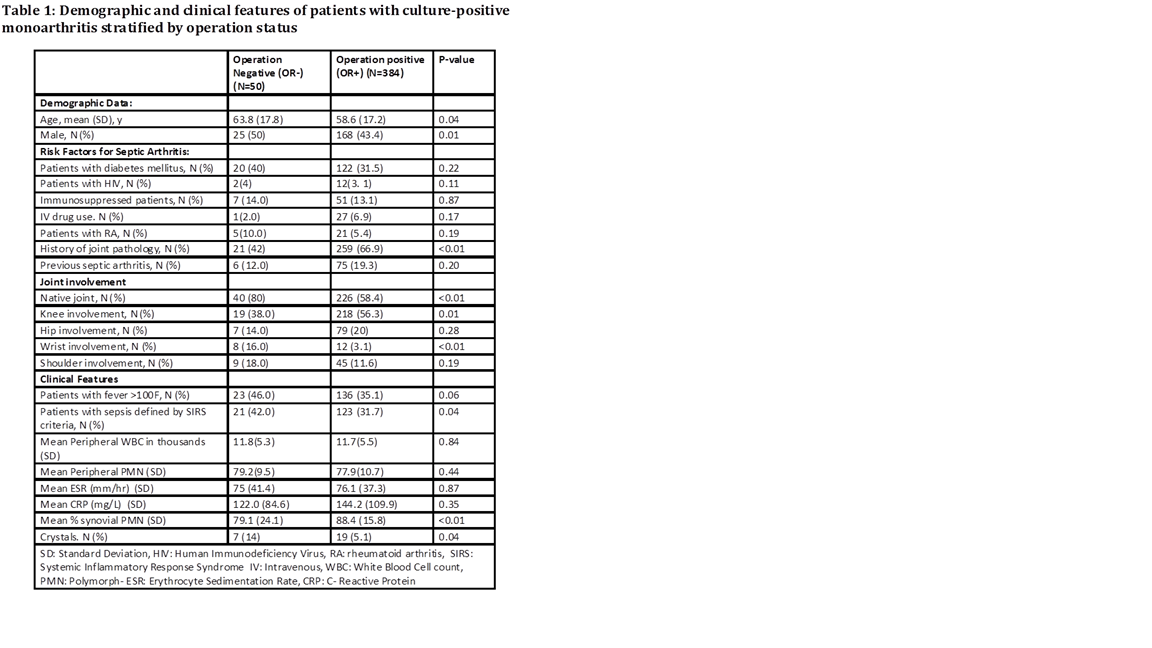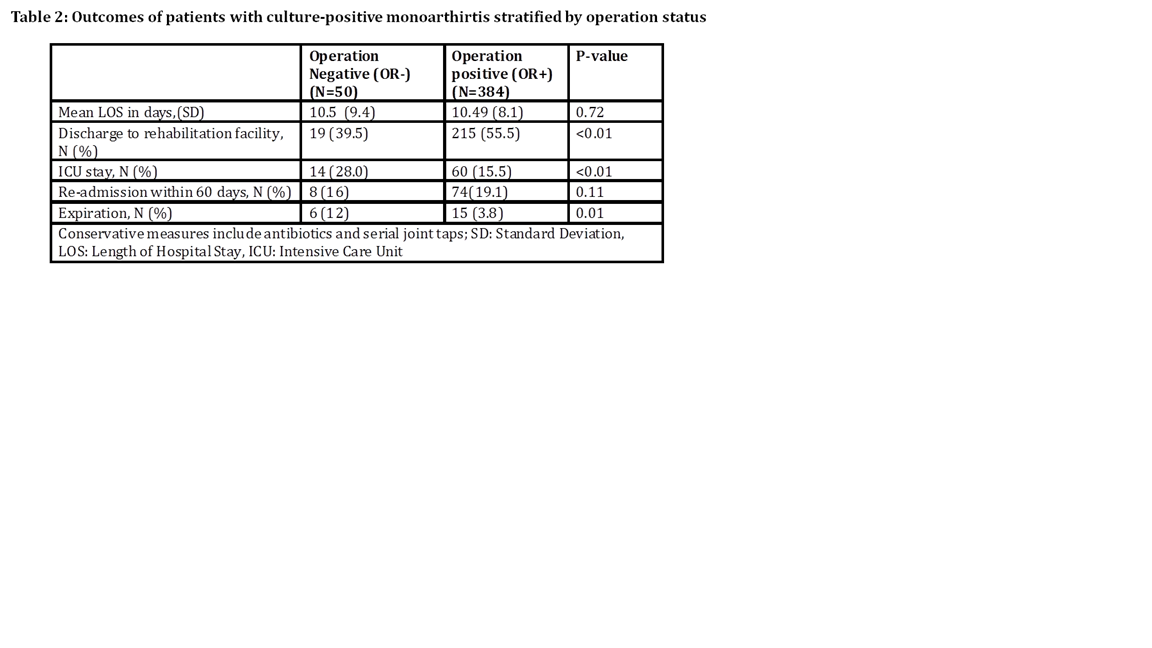Session Information
Session Type: ACR Poster Session B
Session Time: 9:00AM-11:00AM
Background/Purpose:
Septic arthritis (SA) is typically managed with antibiotics
and surgery, though nonsurgical management may be appropriate in certain
circumstances. Little is known about how patients treated for SA with
antibiotic therapy alone differ from their operatively managed counterparts.
The purpose of this study is to compare clinical characteristics and outcomes
of patients with SA managed with or without surgery.
Methods:
We conducted a
retrospective cohort study of patients 18 years and older admitted to a single
tertiary care center from 1998 to 2015 with culture-positive septic
monoarthritis. Patients were stratified into operatively (OR+) and
non-operatively (OR-) managed groups. Microbial profile, predisposing factors,
sites of joint involvement, length of hospital stay (LOS), and 60-day
readmission rate were determined.
Results:
434 patients with culture-positive SA were identified; 50 were
OR- and 384 were OR+. In the OR- group,
45 patients were not offered surgery by the consulting surgeon while 5 patients
declined surgery that had been recommended.
The OR+ patients were older (63.8 vs. 58.6 years old; p =0.04) and the
OR+ group had more pre-infection joint pathology (p<0.01); otherwise, the
groups were similar with respect to baseline comorbidities [Table 1]. Prosthetic
joint involvement was more commonly observed in the OR+ group (p<0.01). The knee was the most commonly involved joint
in both groups, though more predominant in the OR+ group (p=0.01), and
relatively more wrist involvement was noted in the OR- group (p<0.01) [Table 1]. The most commonly isolated organisms were methicillin-sensitive Staph
aureus and methicillin-resistant Staph aureus. Clinical presentations
and outcomes differed significantly between groups, with more severe disease
[Table 1] and worse outcomes [Table 2] noted among those in the OR- group. All patients in the OR- group with prosthetic
joint involvement (n=10) survived.
Conclusion:
On the basis of this large retrospective study, patients with culture-positive SA who
were not taken to the operating room appeared to be much sicker than those who
underwent surgery. Despite this, most survived,
including all of those with prosthetic joint involvement. Based on these
findings, future research should include randomized trials comparing
conservative and operative therapy in selected patients with SA.
To cite this abstract in AMA style:
Lieber SB, Moore A, Zhu C, Shmerling RH, Fowler ML, Paz Z. Clinical Characteristics and Outcomes of Patients with Septic Arthritis Treated without Surgery [abstract]. Arthritis Rheumatol. 2015; 67 (suppl 10). https://acrabstracts.org/abstract/clinical-characteristics-and-outcomes-of-patients-with-septic-arthritis-treated-without-surgery/. Accessed .« Back to 2015 ACR/ARHP Annual Meeting
ACR Meeting Abstracts - https://acrabstracts.org/abstract/clinical-characteristics-and-outcomes-of-patients-with-septic-arthritis-treated-without-surgery/


